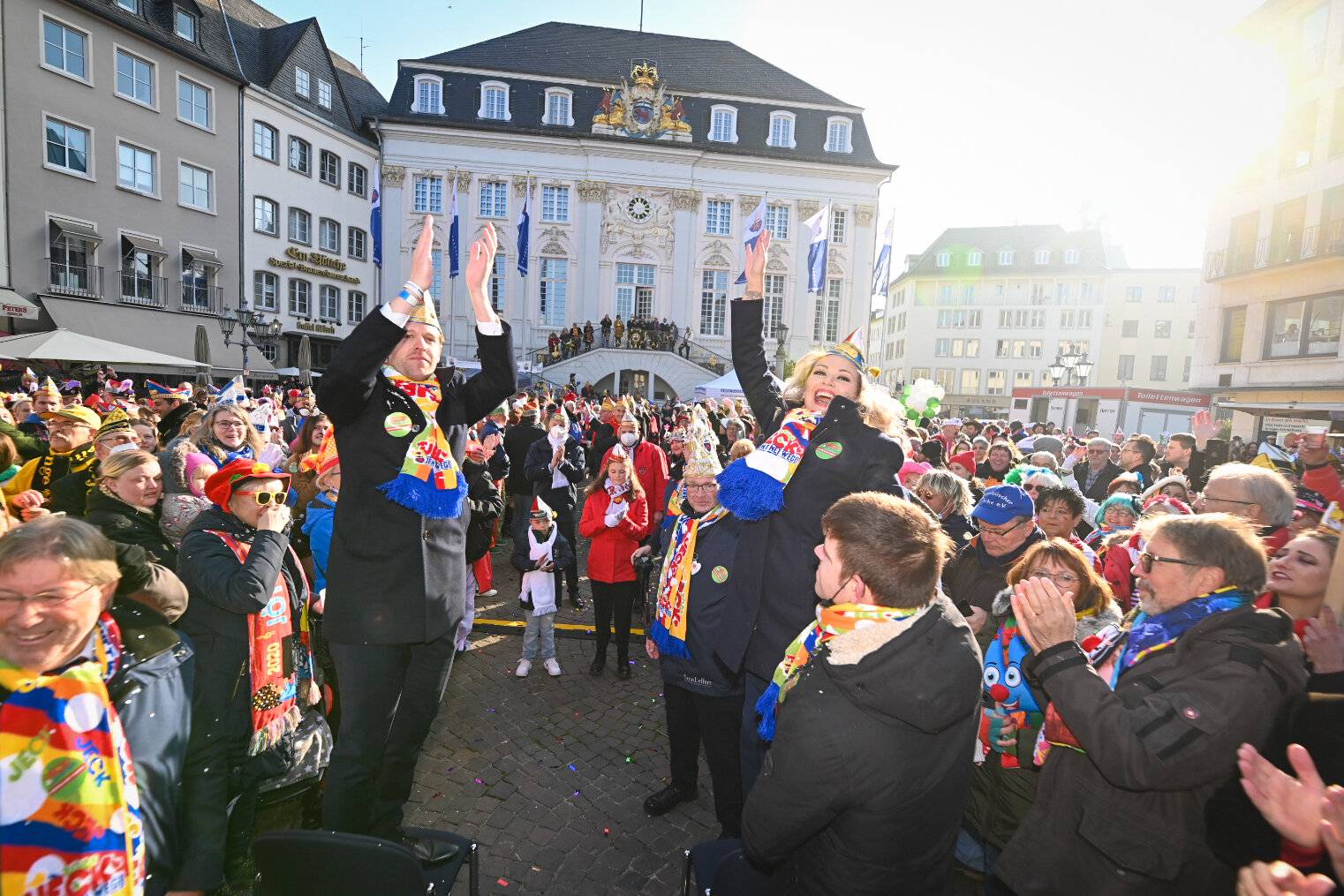Effects of the war How Ukrainians and Russians in Bonn act against hatred
Bonn · How has the relationship between Russians and Ukrainians in Bonn changed since the war? A priest of the Russian Orthodox parish of the Protection of the Blessed Virgin Mary, Maria Peter-Filatova, a native of Moscow, and other people concerned report.
24 February 2022 was the day when Maria Peter-Filatova's value system collapsed. She was born in Moscow as a Russian-speaking Jew: "I had a happy childhood that was taken away from me all at once," says the photographer, who came to Germany in the 1990s and now lives in Bonn.
Shortly after Russia's invasion of Ukraine, she and fellow campaigners started humanitarian aid campaigns from Bonn with the aim of helping Ukrainians fleeing or on the ground in Bonn. "This is my personal response to the invasion. This is my weapon with which I am ready to fight.“
Peter-Filatova tries to build bridges
So for a year now, the Moscow-born woman with a German passport has been trying to help refugees: with food, shampoo and nappies in the early days. And to this day with counselling or the organisation of language courses. "I try to counteract this. I try to build bridges.
But it's not easy," says Peter-Filatova. She and two Russian comrades-in-arms now organise regular meetings with young people from Ukraine in the youth basement of the Protestant Lukaskirche congregation. She says they are accepted and respected for their help.
But she also notices that in this year of war "the hatred of Ukrainians towards Russians has grown". Those who don't know her personally and turn to her for help now write emails in Ukrainian. A few months ago, such mails reached her in Russian. Peter-Filatova can understand that.
"The war is very close," she says. She was once approached by a woman who wanted to buy a soldier's helmet for her husband so that he would be better protected at the front. Donors were found and the model was bought and sent to her husband. A short time later, he was hit in a battle. "The wife told me that he was injured. Without the helmet, he would have been dead." Peter-Filatova believes that it will take several generations "before the wounds left by the war can heal". No, she is not pessimistic. "I just know the history.“
Outside the Russian Mixed Market in Bonn-Tannenbusch, Ukrainian Kristina Melnyk, neither related nor in-law to former German ambassador and current Ukrainian deputy foreign minister Andrij Melnyk, says: "I have a heart and I have a mind." Her mind tells her that not every Russian is bad, "but my heart is confused because I don't understand why they are killing us."
After a year of war - she has been staying with her two children in Bonn with acquaintances for almost a year - she feels more and more clearly how her inner attitude is changing, "how it is becoming more and more difficult for me to talk to people from Russia". She says she sees how some Russians show solidarity with the Ukrainians. "But there are also the others who support Putin and are against us." Melnyk's husband, meanwhile, is fighting on the front lines.
"The climate is poisoned"
Outside the supermarket, Alexander is also ready to talk about the relationship between Ukrainians and Russians. He is a Russian-German whose family moved to Germany during Soviet times. "This is not just Putin's war. Nato and the West are partly to blame that it has come to this," says the 67-year-old, who does not want to give his surname. The arguments are too heated in these times, the climate too poisoned, to reveal one's own opinion with one's full name.
Most of the time, he watches the news on Russian television. Sometimes he also watches the news. His impression: "We are Europe's scapegoats. All against Russia." He doesn't know many Ukrainians. And when he does meet some, for example in a Russian supermarket, he makes sure he gets on quickly.
The Russian Orthodox parish of the Protection of the Virgin Mary, based in Bad Godesberg, behaves differently. Father Eugen Theodor publicly condemned the violence in Ukraine in no uncertain terms a few days after the war began. This attitude has apparently not changed since those days. "If someone is in need, we help. The origin does not matter. If we behaved differently, we would not be Christians," says Ilya Filonenko, chairman of the local council. In the past twelve months, many Ukrainians have come to the community. The community provides bureaucratic help, assists in filling out registration papers, translates.
Filonenko does not have the impression that the refugees from Ukraine who come to the Russian Orthodox parish have fears or distance themselves from him. Perhaps this is due to the church as a protected space: "I cannot understand why people are still dying in wars in the 21st century. Sometimes I think the world has gone mad."
(Original text: Philipp Königs; Translation: Mareike Graepel)



